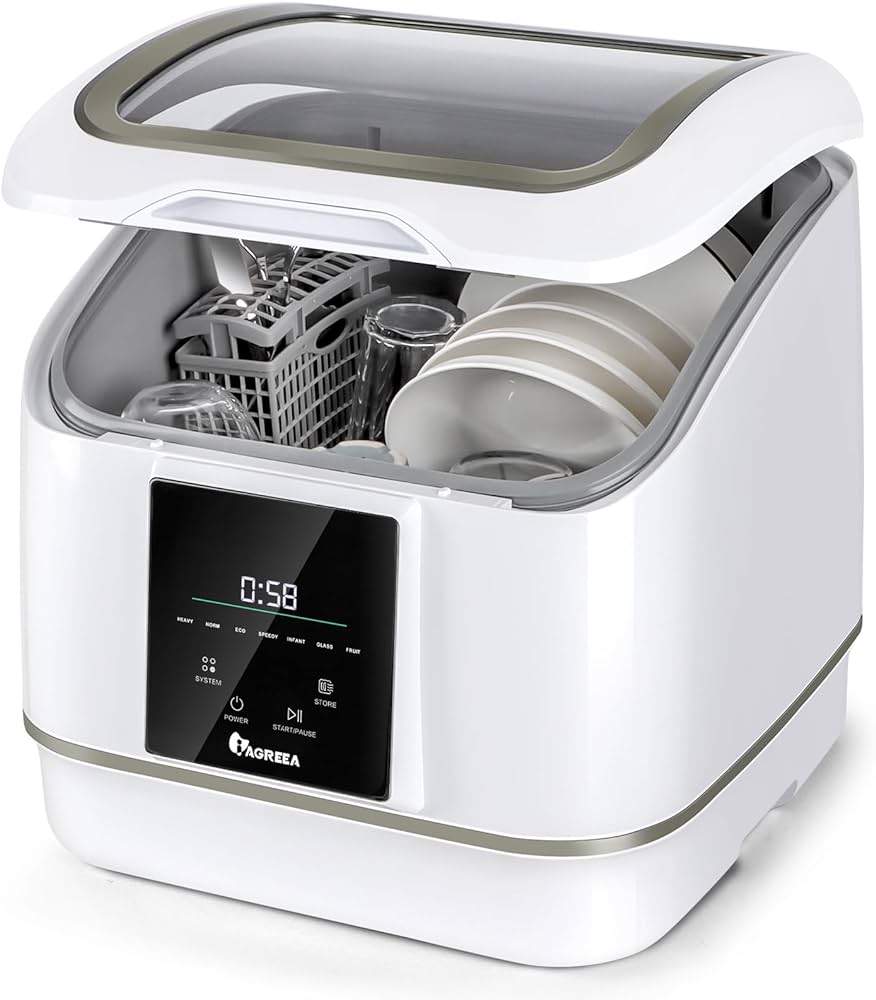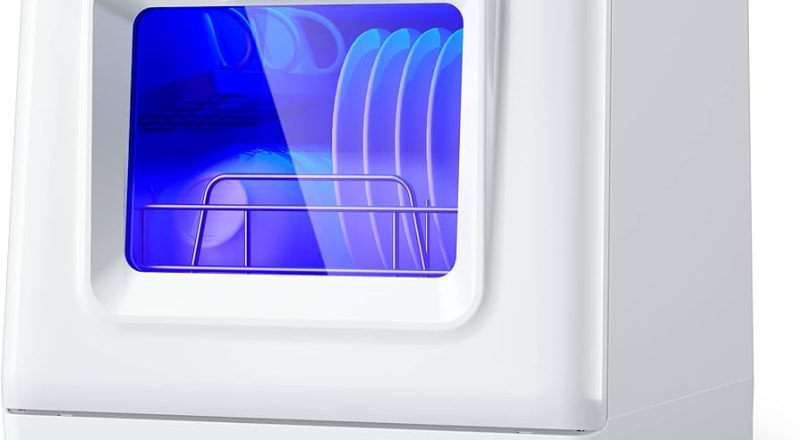Introduction
Determining the life expectancy of a GE dishwasher can help you plan for its replacement and make informed decisions regarding repairs and maintenance. The lifespan of a dishwasher can vary depending on several factors, including usage patterns, maintenance, model quality, and environmental conditions. In this guide, we will explore the factors that influence the life expectancy of a GE dishwasher, signs of wear and potential issues, maintenance tips, and when it might be time to consider a replacement.

What is the life expectancy of a GE dishwasher ?
Factors Affecting Life Expectancy
1.1. Usage Frequency
The frequency of use is a significant factor in determining the lifespan of a dishwasher. A dishwasher that is used more frequently is subject to greater wear and tear, which can impact its longevity. High-frequency use, such as daily use or multiple loads per day, may result in a shorter lifespan compared to dishwashers used less frequently.
1.2. Load Size and Capacity
Overloading a dishwasher can strain its components, leading to premature wear and potential malfunctions. It is important to follow the manufacturer’s guidelines regarding load size and weight capacity to avoid unnecessary stress on the dishwasher. Regularly exceeding the recommended load capacity can shorten the lifespan of the appliance.
1.3. Maintenance and Care
Proper maintenance and care play a crucial role in extending the life of a dishwasher. Regular cleaning, such as removing food debris from filters and spray arms, can prevent clogs and improve performance. Additionally, avoiding the use of harsh detergents or abrasive materials and promptly addressing any issues or repairs can also contribute to the dishwasher’s longevity.
1.4. Water Quality and Hardness
The quality and hardness of the water used in a dishwasher can impact its lifespan. Hard water, which contains high levels of minerals like calcium and magnesium, can cause scale buildup and clog internal components over time. Using a water softener or periodically descaling the dishwasher can help mitigate these effects and extend its lifespan.
1.5. Model Quality and Durability
The quality and durability of the dishwasher itself can influence its life expectancy. Higher-end models or those built with more robust materials and components may have a longer lifespan compared to budget-friendly or less durable options. It is important to consider the build quality and reputation of the specific GE dishwasher model when estimating its life expectancy.

Signs of Wear and Potential Issues
2.1. Inefficient Cleaning
If a dishwasher consistently fails to clean dishes thoroughly or leaves behind residue, it may indicate a problem with the spray arms, filter, or water circulation system. While these issues can sometimes be resolved through maintenance or repairs, repeated occurrences may suggest that the dishwasher is no longer operating at its optimal level and may be approaching the end of its life.
2.2. Noisy Operation
Unusual noises during operation, such as grinding, rattling, or humming sounds, can be signs of potential issues or wear in the dishwasher. Excessive noise may indicate a worn motor, loose components, or a malfunctioning pump. If these noises persist despite proper maintenance, it may be an indication that the dishwasher is nearing the end of its lifespan.
2.3. Water Leaks or Drainage Problems
Leaking water or drainage issues can be signs of worn seals, damaged hoses, or malfunctioning valves in the dishwasher. While these issues can sometimes be repaired, frequent leaks or persistent drainage problems may indicate that the dishwasher’s components are deteriorating and the lifespan is nearing its end.
2.4. Control Panel Malfunctions
Malfunctions in the dishwasher’s control panel, such as unresponsive buttons or error messages, can signal potential issues. While some control panel problems can be resolved through troubleshooting or repairs, repeated malfunctions may indicate underlying issues and an aging dishwasher.

Maintenance Tips to Extend Lifespan
3.1. Regular Cleaning
Perform regular cleaning of the dishwasher to prevent the buildup of food debris, mineral deposits, and detergent residue. Clean the filter, spray arms, and interior surfaces regularly. This will help maintain optimal performance, prevent clogs, and extend the lifespan of the dishwasher.
3.2. Check and Clean the Drain
Inspect and clean the dishwasher drain regularly to prevent the accumulation of food particles and debris. A clogged drain can cause drainage issues and lead to potential damage to the dishwasher’s components.
3.3. Use Recommended Detergents
Using the appropriate types and amounts of detergents specified by the manufacturer is crucial for maintaining the health and performance of the dishwasher. Excessive or inappropriate detergents can cause buildup or damage to the dishwasher’s components, leading to decreased efficiency and potential issues.
3.4. Address Issues Promptly
Promptly address any issues or malfunctions that arise in your dishwasher. Ignoring or delaying repairs can worsen the problem and potentially cause additional damage. Timely repairs and maintenance will help extend the lifespan and efficiency of the dishwasher.

Knowing When to Consider Replacement
4.1. Age of the Dishwasher
The age of a dishwasher is a significant factor in considering a replacement. While there is no specific age at which every dishwasher should be replaced, most dishwashers have an average lifespan of 10-15 years. If your dishwasher is reaching or exceeding this age range and exhibiting frequent issues, it may be time to consider a replacement.
4.2. Cost of Repairs
Consider the cost of repairs when evaluating whether to replace your dishwasher. If the cost of repairs exceeds a significant portion of the dishwasher’s value or the estimated cost of a new dishwasher, it may be more economical to invest in a new appliance rather than continuing to repair an older one.
4.3. Efficiency and Performance
If your dishwasher is no longer cleaning dishes effectively, experiences frequent breakdowns, or lacks energy efficiency compared to newer models, it may be a good time to consider an upgrade. Newer dishwashers often offer improved features, technologies, and energy efficiency, providing better performance and cost savings over time.
4.4. Safety Concerns
If safety concerns arise, such as electrical issues, persistent leaks, or unstable operation, it is important to prioritize safety and consider replacing the dishwasher. Continued use of a malfunctioning or unsafe dishwasher can pose risks to both property and personal well-being.

Conclusion
The life expectancy of a GE dishwasher depends on various factors, including usage frequency, maintenance, water quality, and model quality. By understanding these factors and recognizing signs of wear and potential issues, you can make informed decisions regarding repairs, maintenance, and replacement. Regular maintenance, proper care, and prompt repairs can help extend the lifespan of your GE dishwasher. Considering factors such as efficiency and seeking professional advice will further assist you in maximizing the lifespan of your dishwasher. By carefully evaluating the condition of your dishwasher and considering these factors, you can make informed decisions that contribute to the longevity and efficient operation of your GE dishwasher.

